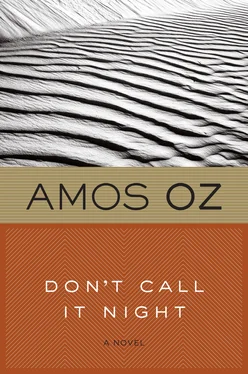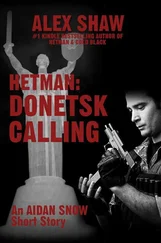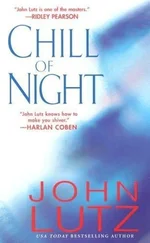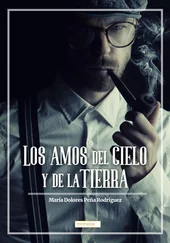I sat in my undershirt at the desk in my bedroom and tuned my transistor to London. Between news bulletins there was a programme about the life and loves of Alma Mahler. The presenter said that the male world was incapable of understanding her heart and saw in her a different character, not who she really was; then she began explaining what Alma Mahler was really like. I cut her off in mid-sentence, to show her that the male world has not improved, and went barefoot to the kitchen to raid the refrigerator. I was only after a sip or two of cold water but the soft light inside the refrigerator ambushed me like a caress. So as not to lose it and be left in the dark I poured myself some cold wine and peeled a triangle of cheese and meanwhile I found that I was tidying up the shelves. I sniffed the open carton of milk a couple of times, suspicious both of the milk and of my own sense of smell. I dropped a cluster of sausages in the garbage can because their colour looked off. I drew up the yogurts in a rear line in order of date and closed the ranks of the eggs in the plastic trays. I hesitated before a jar of tuna, but compromised by covering it in plastic film. I pulled down some bottles of juice from a cupboard and slotted them into the door of the refrigerator to plug some gaps in the line. I arranged an orderly display in the vegetable tray and again in the fruit basket. It was only with difficulty that I fought off the temptation to attack the freezer compartment. I advanced on tiptoe to the door of her bedroom: I'm here if I'm called for. If not, at least I can try to catch a whiff of her slumber; perhaps I will absorb some of her surplus sleep.
From there, to the balcony, and the faded, old-fashioned chair.
The night is almost transparent. The whole world is bathed in a cold silvery light. It is not breathing. The two cypress trees seem to be carved out of basalt. The moonlike mountains look swathed in lunar wax. Hazy creatures crouch here and there, and they too look moonlike. In the valleys there are shadows within shadows. There was a single cicada that I notice only when it stops. What did the men mistakenly see in Alma Mahler and what was she really? If an answer to this question was possible, I missed it. It is almost certain that the question is meaningless, that it is framed in an empty fashion, and that no answer is theoretically possible. The presence of the barren hills in the darkness cancels words like "almost certain" or "theoretically possible", and empties out the question, What did I see in you, Noa, or what do you see in me? I shall stop. Let's suppose that you see in me what I sometimes see when I look at the desert. And how about me? Let's say: a woman who is fifteen years younger than I am with a pulse like that at the core of life itself, a protoplasmic, rhythmic pulse, from before words or doubt existed in the world. Sometimes, without meaning to, she suddenly touches your heart. Like a cub, or a chick.
Years ago I learned to find my way around the map of the stars. It was something I learned in the army, or even earlier, in the youth movement. On clear nights I can still identify the Great Bear and the Little Bear and the Pole Star. As for the planets, I can still locate them but I forget which one is Jupiter, Venus or Mars. Right now in the total silence everything seems to have stopped and even the planets seem to have ground to a halt. It seems as though the night will go on forever. All the stars look like tiny pinholes in the floor of the upper storey, droplets of luminosity from the light of the sky shining on the other side. If the curtain is drawn back, the world will be flooded with radiance and everything will become clear. Or be burned up.
There is a good telescope indoors, behind the bed linen on the second shelf on the left. I could go inside and get it so I can see better. Maybe Nehemia left her the telescope that used to belong to Peeping Gorovoy. Or to Yoshku, her cousin. There are still three or four such objects lurking around the house. The rest have gone. Disposed of. Even more spoiled than he was, she once said during a row, even more of a Neanderthal male. She stopped short. She never repeated it. Even when we fight she keeps tight control of herself, and of me, her foot always firmly on the brake pedal. I am careful too, I know the limits: like touching glass with glass and drawing back just in time.
From the east, from the mountains, comes a gust of piercing desert wind. Like a cold sharp scythe. The wilderness is secretly breathing. The dust and stone look like an expanse of calm water in the dark. It is even, suddenly, cool. Nearly two o'clock. I'm not tired but I'll go to my bedroom without switching the light on, I'll get undressed and go to bed. Radio London will tell me what is not known here yet. How is the world tonight? Tribal clashes in Namibia. Floods in Bangladesh. A big rise in the number of suicides in Japan. What's coming next? Let's wait and see. What comes next is punk music, merciless, penetrating, rough and bloodthirsty, from London, at a quarter past two on Wednesday morning.
I WOKE up at six and managed to write the memorandum. Muki Peleg will go over it and Linda has offered to type it out. At lunchtime I'll send it to Avraham Orvieto, with copies for the Mayor and the Treasurer. Who else should I send it to? I must find somebody who has some idea. Perhaps I should get hold of a copy of the official regulations and learn them all. Should I consult Theo anyway? That's all he's waiting for, like a hunter. He knew from the start that I'm not up to the challenge. He knew that after one or two slip-ups and failures I'd come running straight to him. Meanwhile, he's tactful enough to say nothing and not interfere. Like a grown-up who allows a toddler to climb wherever he likes but keeps a close watch and holds his hands out, where the child can't see him, to catch him if he falls.
I began the memorandum with an account of the "development of the idea". I found this expression unsuitable, but I couldn't find a better one. One of our students died in an accident "consequent upon drug-taking". There are various conflicting accounts circulating in the staff room about the circumstances of the incident. I was interested in the young man in question, even though I never actually managed to exchange more than a few words with him. Immanuel Orvieto was a quiet pupil. One of three boys in a literature class containing thirty girls. In recent years shy pupils have disappeared, they are all noisy during break and drowsy during literature lessons. Tired, disconnected, they stare blankly at Flaubert and me with a stubborn expression of amused contempt, as if we were trying to sell them fairytales about storks and babies. But there was something about Immanuel that always reminded me of winter. Once he was late handing in an essay on Agnon. I stopped him in break and asked why. He lowered his eyelashes, as if he had been asked a question about love, and answered softly that the story in question was not particularly relevant to him. I interrupted sharply, Who's talking about relevance, we're talking about an obligation. He found no answer to this, even though I kept him there cruelly for a whole minute before I said coldly, All right, let me have it by next week.
He handed me the essay ten days later. It was a fine, carefully reasoned, understated piece of work. After the concluding sentence he had added a personal line in brackets: In the end I did find some relevance in the story, despite the obligation.
Once I asked him on the stairs why he never put his hand up in class, surely he had things to say, I'd have liked to hear him talk occasionally. Again he had to pause before he answered hesitantly that he found words a trap. Not long before Pesach, I voiced the opinion in class that Yehuda Amichai wanted to express his opposition to war, and suddenly there was Immanuel's introverted voice, as though talking in his sleep, and with an interrogative note at the end of the sentence: Whatever the poet did or didn't want to say gets in the way of the poem?
Читать дальше












